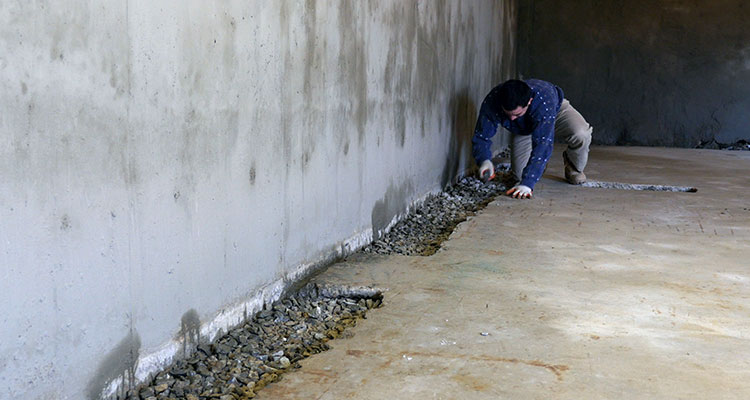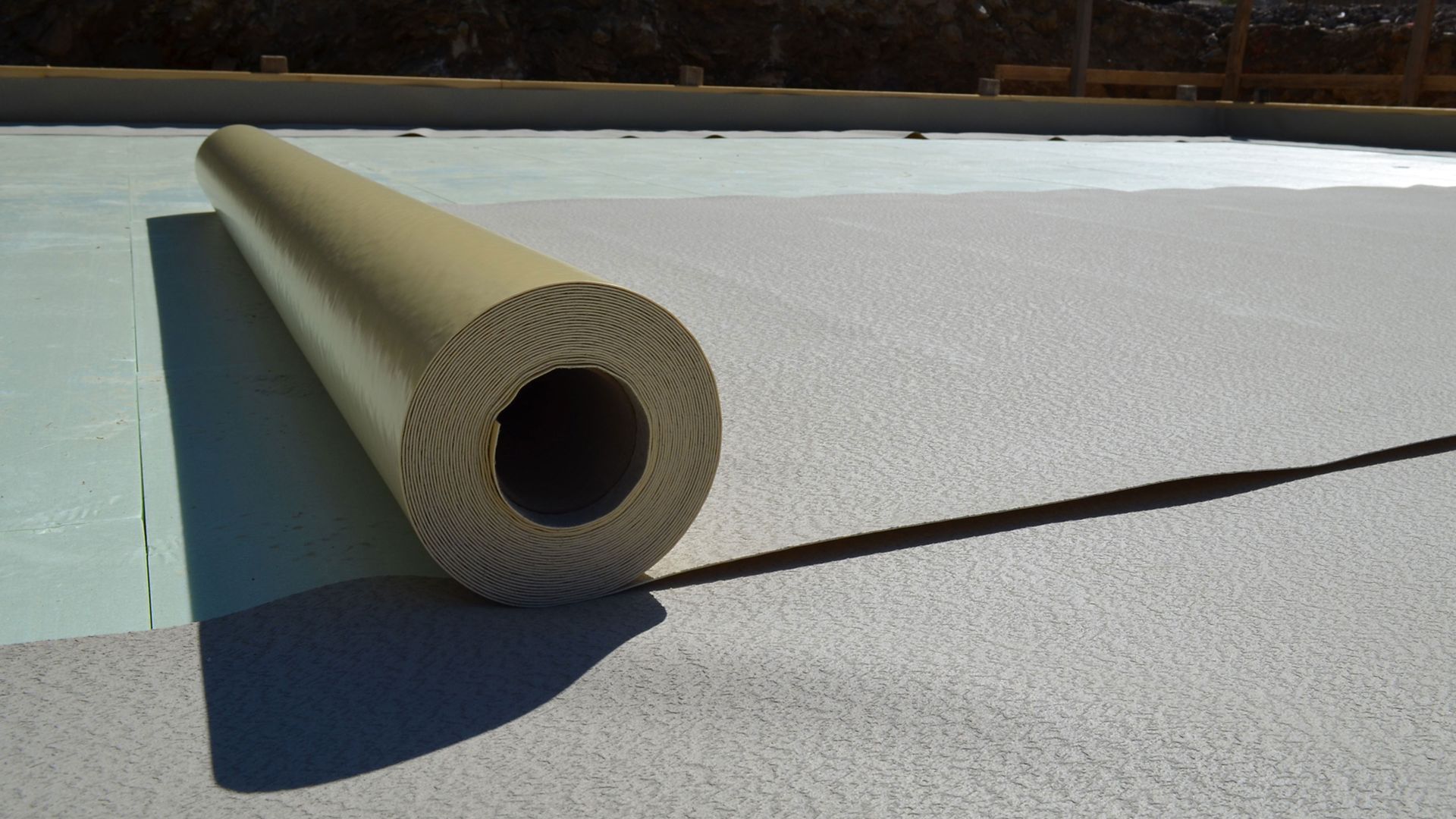Beginner’s Guide to French drain installation Omaha: Everything You Need to Know
Exactly How Waterproofing Functions: A Comprehensive Take A Look At Methods and Technologies
Waterproofing is important for shielding structures from moisture-related damages. It includes different techniques and modern technologies that create obstacles versus water breach. Standard techniques, such as compacted clay, exist side-by-side with contemporary advancements like liquid-applied membranes. Recognizing the subtleties of these methods is crucial for reliable application. Nevertheless, the effectiveness of any kind of waterproofing service hinges not just on the methods used however also on ongoing upkeep and inspection. What are the crucial elements that affect long-lasting efficiency?
Recognizing the Basics of Waterproofing
Waterproofing is a vital process that safeguards frameworks from water breach, which can lead to substantial damage with time. This approach involves the application of different materials and methods developed to create a barrier versus dampness. The key objective is to stop water from passing through surfaces, which can cause deterioration, mold growth, and architectural instability.Various aspects affect the selection of waterproofing method, including the kind of framework, its area, and environmental problems. Recognizing the physics of water activity and the residential or commercial properties of different materials is critical in choosing an efficient waterproofing solution.Effective waterproofing not only safeguards buildings however additionally boosts their longevity and stability. Normally, it is integrated right into the design phase of building and construction to guarantee thorough protection. As awareness of water-related concerns expands, the importance of understanding waterproofing basics becomes significantly clear to architects, building contractors, and homeowner alike.
Traditional Waterproofing Methods
Standard waterproofing methods have actually been made use of for centuries, depending on time-tested techniques and materials to secure frameworks from water damage. One of the earliest methods involves making use of clay, which, when compressed, produces a natural barrier versus dampness. In addition, asphalt, a sticky, black product derived from petroleum, has been utilized for its waterproof residential or commercial properties, often related to roof coverings and foundations.Another method entails the application of lime-based plasters, which offer a breathable layer that enables moisture to escape while preventing water access. Thatch roof, a traditional method still seen in some societies, provides exceptional waterproofing as a result of its firmly packed straw layers.Moreover, the usage of rock and block has actually been famous, as these materials are inherently immune to water when appropriately installed. Generally, conventional waterproofing techniques emphasize the relevance of picking suitable materials and building and construction techniques to improve resilience against water breach.
Modern Waterproofing Technologies
Developments in modern waterproofing technologies have actually revolutionized the way structures are safeguarded from water damage. Cutting-edge strategies such as liquid-applied membranes and innovative sealants have actually boosted the effectiveness and versatility of waterproofing services. These innovations permit seamless application, minimizing the risk of leaks and making certain detailed insurance coverage over complicated surfaces.Moreover, the integration of wise technologies, such as wetness sensing units and automated tracking systems, makes it possible for real-time analysis of waterproofing performance. This positive strategy promotes prompt maintenance and reduces lasting fixing costs.Additionally, innovations in spray-applied finishings use fast application and superb attachment, adjusting to various substratums while providing durable defense. Methods like polymer-modified systems additionally enhance flexibility and toughness, making them ideal for diverse environments. On the whole, modern-day waterproofing modern technologies not just minimize water breach but likewise add to the long life and sustainability of structures, marking a considerable change in the sector.
Materials Made Use Of in Waterproofing
The performance of waterproofing services heavily depends on the materials used in their application. Different products are used to produce barriers versus water ingress, each with one-of-a-kind residential or commercial properties matched for different environments. Frequently utilized materials consist of membranes, layers, and sealants.Liquid-applied membranes, commonly made from polyurethane or acrylic, create a smooth barrier that adapts to complicated surface areas. Sheet membranes, normally constructed from rubber or polycarbonate, deal durability and are suitable for larger locations. Furthermore, cementitious waterproofing materials, made up of cementitious substances, provide outstanding attachment and flexibility.Sealants made from silicone or polyurethane are crucial for joints and joints, ensuring detailed security. Advanced materials, such as geo-composite membranes, combine several functions, improving performance. In general, the selection of waterproofing materials is important in accomplishing long-lasting and effective water resistance, roof water proofing tailored to particular task demands and ecological conditions.
Common Applications of Waterproofing
Waterproofing plays an important function in various fields, guaranteeing the long life and integrity of frameworks. Common applications consist of residential services that safeguard homes, business infrastructure that safeguards companies, and industrial settings that require durable protection against dampness. Comprehending these applications highlights the importance of waterproofing in preserving both security and site functionality throughout different environments.
Residential Waterproofing Solutions
Several house owners encounter challenges with moisture breach, making effective household waterproofing solutions crucial. Various techniques exist to address this concern, consisting of interior and outside waterproofing systems. Interior services frequently involve the application of sealants and finishes to cellar wall surfaces, which help prevent water seepage. Exterior approaches generally consist of the installment of drainage systems and water-proof membrane layers that draw away water far from the foundation.Additionally, property owners may consider sump pumps to get rid of water build-up and dehumidifiers to control humidity levels. Correct grading and using gutters likewise play an important function in managing water flow around the home. By applying these techniques, home owners can greatly decrease the danger of water damage and mold development, making certain a completely dry and risk-free living atmosphere.

Industrial Facilities Security
Effective waterproofing solutions play a vital duty in the security of commercial infrastructure. Drainage & waterproofing company Omaha. These methods are vital for guarding buildings, vehicle parking frameworks, and bridges from water damage, which can jeopardize architectural stability and result in pricey repair services. Usual applications consist of the installation of membrane layers, finishings, and sealers that create obstacles versus moisture seepage. Areas such as basements, roofing systems, and exterior walls are commonly prioritized to guarantee long life and longevity. Furthermore, waterproofing systems can enhance energy performance by protecting against water-related issues that may result in mold development and deterioration. By executing robust waterproofing steps, homeowner can safeguard their financial investments and maintain functional efficiency, eventually adding to the total sustainability of business facilities
Industrial Applications Overview
While various markets deal with one-of-a-kind challenges, the need for dependable waterproofing services remains a consistent in industrial applications. Industries such as production, construction, and energy typically come across environments where moisture exposure can jeopardize architectural integrity and operational effectiveness. In producing facilities, waterproofing is important for safeguarding machinery and materials from water damage. In you can look here construction, it safeguards foundations and basements versus groundwater seepage. The power sector depends on waterproofing for the security of devices in hydroelectric plants and overseas structures. Additionally, food processing markets utilize waterproofing to ensure health and compliance with safety and security criteria. On the whole, effective waterproofing services are necessary for boosting resilience, security, and performance throughout numerous industrial settings.
Maintenance and Durability of Waterproofing Solutions
Although waterproofing solutions are designed to use long-term defense against wetness invasion, normal upkeep is important to guarantee their effectiveness and longevity - Basement waterproofing Omaha. Regular evaluations play a significant duty in recognizing potential concerns such as splits, peeling off, or indicators of water damages. Resolving these troubles immediately can avoid additional deterioration and expensive repairs.Additionally, cleaning up the surface area of waterproof areas assists remove dust and particles that might jeopardize the integrity of the waterproofing barrier. It's additionally recommended to reapply safety finishes or sealers as suggested by manufacturers to maintain excellent efficiency. Ecological variables, such as UV exposure and extreme climate condition, can influence the lifespan of waterproofing materials, making normal analysis vital
Frequently Asked Concerns
Can Waterproofing Be Applied in Winter?
The concern of applying waterproofing in cold weather raises worries concerning adhesion and healing. Many products may not execute at their ideal in reduced temperature levels, requiring careful option and consideration of details guidelines for reliable application.
Just How Lengthy Does Waterproofing Usually Last?
The duration of waterproofing performance differs based on products and environmental variables. Usually, it can last from 5 to ten years, but routine maintenance and evaluations are important to assure peak performance and long life.
Is DIY Waterproofing Effective and Safe?
The effectiveness and security of DIY waterproofing depend upon various variables, consisting of material top quality and application strategy. While some individuals attain sufficient results, others might come across issues that endanger lasting security and architectural integrity.
What Are the Indicators of Failing Waterproofing?
Signs of failing waterproofing include noticeable water discolorations, peeling paint, mold development, mildewy odors, and moisture in walls or ceilings - Foundation waterproofing Omaha. These indications suggest jeopardized obstacles, requiring prompt examination and prospective remediation to protect against more damages
Just how Do I Choose the Right Waterproofing Professional?
